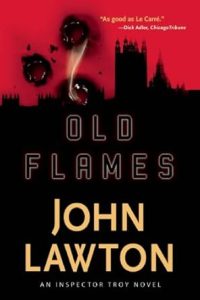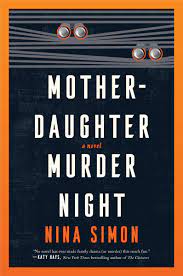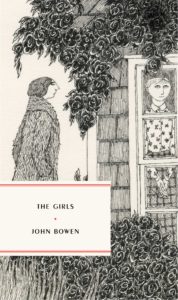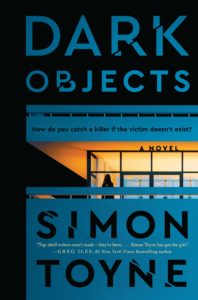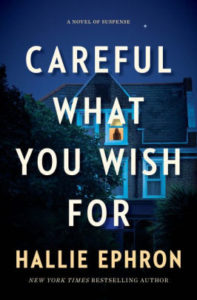Scotland Yard’s Inspector Troy isn’t your typical cop. His roots are Russian, his brother’s a baronet, he owns a mansion, and he sees England in 1956 through a very particular lens. Though his father urged him to “play the game” and learn how to be English, he doesn’t care about cricket or football–or what people think of him either. His wry observations about post WWII-Britain, its feckless leaders, its people and how they speak are priceless:
“Troy loved ‘stands to reason’–it was, when used by a certain kind of idiot, specially bred by the English, the signal, the preface, to the preposterous to a statement that would, beyond a shadow of a doubt, be quite devoid of reason.”
A surprising pair of leaders starts the book on its long and compelling voyage into crime: Nikita Khrushchev and Nikolai Bulganin. They’re respectively the First Secretary of the Communist Party and the Soviet Premier though Khrushchev is truly in charge and bullies his comrade. The men are on a deeply boring whirlwind state visit, and because Troy speaks Russian, he’s been assigned as one of six members of a British security team. All of the men secretly speak Russian and the government hopes that they’ll catch the communist guests saying something worth spying for.
Troy is assigned to Bulganin but in a powerful and comic scene insists on accompanying Khrushchev. His interactions with “K” are surprising, entertaining, and move the book forward at breakneck speed before Troy actually gets to investigate any murders. This is a delicious choice that Lawton’s made because it goes so much against the crime novel formula of finding a corpse in the opening pages–or at least the opening chapter.
And speaking of corpse–I was delighted to learn that in England that word can be a verb. According to the Cambridge Dictionary, it means “to start laughing in a way you cannot control during a performance, or to make someone else do this.” That actually once happened to me in London at a performance of a P.G. Wodehouse adaptation where I laughed so hard I slid out of my aisle seat. The actors saw me and cracked up too, followed by the whole audience.
The verb corpse is apparently used by actors and performers, again er the Cambridge Dictionary, and it fits this novel perfectly because for Troy, being British is a performance. You might find yourself corpsing yourself at the antics of Troy’s busybody twin sisters Masha and Sasha.
Lawton has been compared to John Le Carré and that’s not remotely hyperbolic. His work is richly layered, beautifully written, and has a sense of majesty. His ability to capture the atmosphere of a period rivals Alan Furst’s and Troy’s irony reminds me very much of Martin Cruz Smith’s Arkady Renko series. That’s a hell of a combination.
Old Flames is a novel to savor, offering a window into another world that couldn’t be more real and compelling. There were many lines and even whole scenes I had to re-read because they either made me laugh or because they were so perfectly realized I was in awe of Lawton’s skill. Lawton’s minor characters are Dickensian, and that even includes an athletic pig.
Lev Raphael has reviewed for The Detroit Free Press, The Washington Post, Bibliobuffet, Jerusalem Report and a handful of public radio stations in Michigan. He’s the author of the Nick Hoffman mysteries. His mother was born in St. Petersburg and her father was in the first Russian Revolution and escaped the Bolsheviks with his wife and infant daughter.

